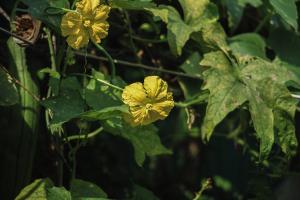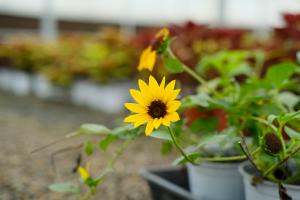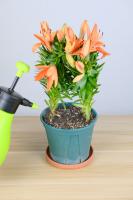What Plants are Good for Allergies
Allergies are a common problem for many people around the world. However, not everyone wants to turn to over-the-counter medications to alleviate symptoms. Instead, natural remedies are becoming increasingly popular. One such remedy is the use of plants to combat allergies. In this article, we will explore what plants are good for allergies.
Nettle
Nettle, also known as stinging nettle, has been used for centuries to combat allergy symptoms. It contains histamine, which is the body's natural response to allergens. By introducing a small amount of histamine into the body, it can help to reduce the severity of allergic reactions. Nettle is also rich in quercetin, a natural antihistamine.
Eucalyptus
Eucalyptus is a versatile plant that has many health benefits, one of which is its ability to combat allergies. The plant contains eucalyptol, which can help to break up mucus in the respiratory tract. It is also a natural anti-inflammatory that can help to reduce inflammation and swelling that can occur as a result of allergies.
Gingko Biloba
Gingko Biloba is a plant that has been used medicinally for thousands of years. It is known for its ability to improve cognitive function, but it can also be beneficial for allergy sufferers. It contains quercetin, which is a natural antihistamine. It can also help to reduce inflammation and swelling that can occur during an allergic reaction.
Butterbur
Butterbur is a plant that has been used for centuries to alleviate symptoms of allergies. It contains petasin and isopetasin, which are natural antihistamines. Studies have shown that butterbur can be as effective as some prescription medications in reducing allergy symptoms, including nasal congestion and itchy eyes.
Turmeric
Turmeric is a spice that is commonly used in Indian cuisine. It is also a powerful anti-inflammatory that can help to reduce inflammation and swelling that can occur as a result of allergies. It contains curcumin, which has been shown to inhibit the release of histamine, a key contributor to allergy symptoms.
Conclusion
Incorporating these plants into your daily routine can be an effective way to combat allergy symptoms. However, it is important to note that while these plants are generally safe, they can still cause allergic reactions in some individuals. As with any natural remedy, it is important to speak with your healthcare provider before use. With the right approach, natural remedies can be an effective way to treat allergies without the use of medication.

 how many times do yo...
how many times do yo... how many planted tre...
how many planted tre... how many pine trees ...
how many pine trees ... how many pecan trees...
how many pecan trees... how many plants comp...
how many plants comp... how many plants can ...
how many plants can ... how many plants and ...
how many plants and ... how many pepper plan...
how many pepper plan...






























